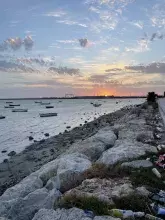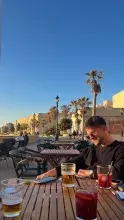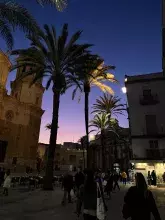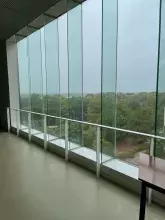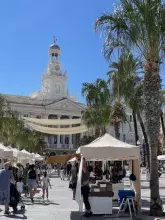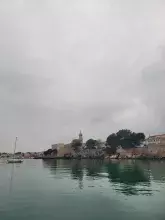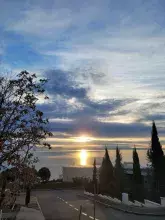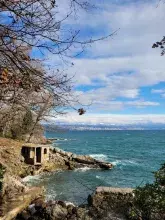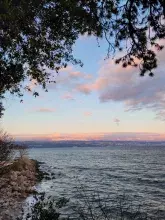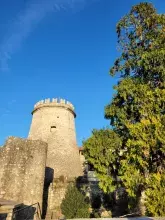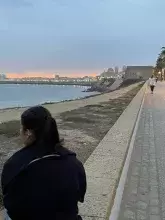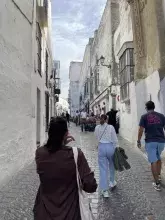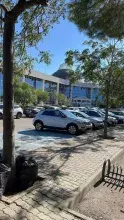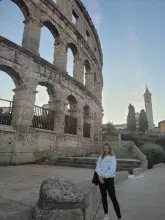ERASMUS - To leave or not to leave? That is the question!
Two adventurous students decided to see for themselves what it's like to go to a different part of Europe for a semester! We asked them what the application process and a typical day at Erasmus was like. It turns out that the trip is not always strewn with roses, but it always leaves behind beautiful memories and sentiments.
Application
As Julia, a student exchange participant in Croatia, puts it: "As long as we are young people, it's worth grabbing as many opportunities to embellish our study period as we can. I wanted to get out of my comfort zone and see what real student life is like." This thought was followed by the decision to go to Rijeka.
However, before Julia could experience her dream five months abroad, she had to face the application and recruitment process for the ERASMUS+ programme.
"The application process was really annoying at times, but with the help of other students and the coordinators everything went as expected. The coordinators were there to help at every stage of the application. Without their help, I doubt I would have managed to fill in all the forms."
We also asked how Adam, an exchange participant to sunny Cadiz, Spain, recalls his application process:
"I remember the time of the initial recruitment stage very well, the problem came when filling in the Online Learning Agreement (OLA). Completing the OLA was by far the most difficult thing for me. I recommend dealing with this as soon as possible, as it is rare that the first version sent will be approved. Fortunately, my anxiety did not last long and in a few months I was able to enjoy my stay in hot Spain."
A detailed description of the application process for the ERASMUS+ programme can be found here:
https://ug.edu.pl/strona/86907/procedura-wyjazdowa-krok-po-kroku
A typical day at Erasmus
Routine? Nothing could be further from the truth! At Erasmus, every day presents you with new challenges and the amount of learning doesn't necessarily match up. Julia found this out perfectly.
"In terms of learning, I thought it would be quite enjoyable and I would have a lot of time to explore a new country, after all it is Erasmus. I was wrong!"
An Erasmus trip is ultimately a full-fledged study for a whole semester, the only difference being a different country, language and culture. Many students initially set their sights on a six-month holiday, and on arrival find that this assumption was wrong.
As for the classes at the university, Julia was surprised by how much emphasis the Croatian lecturers placed on interaction with the student.
"The classes strongly focus on giving answers and expressing your opinion. The lecturer gives a presentation and then we answer questions from which a discussion ensues. As for the exams, their format is similar to the one I know from UG. I like the fact that in Croatia the lecture and exercises are combined into one and not divided up as in Poland. As a result, I only have classes at the university twice a week. The rest of my time is spent sightseeing and meeting new friends."
When deciding to go on an Erasmus student exchange, one of the requirements is to know the language of the country at a level that allows you to communicate freely during the day. Julia's biggest concern was whether she would be able to communicate in all situations.
"Leaving I was afraid of how it would be with my English. I had never gone to another country for so long before. Despite having a good command of English, I was worried that I wouldn't be understood in class or that my vocabulary wouldn't be sufficient to lead a conversation on any topic. As it turned out, Croatians don't pay attention to the grammar you use and help you find a synonym if you forget a word! I really liked this approach and it helped me overcome my language barrier within a short time of arriving."
When asked about his (un)typical day in Spain, Adam replied:
"Classes at university usually started at 8:30 a.m. As the chemistry department was located in the neighbouring town of Puerto Real, I had to spend a lot of time commuting. Lectures and exercises always ended at 1:30 p.m. Any laboratory classes were held after lectures. When I returned to Cadiz, I ran to the intensive Spanish course offered by the university. If someone lacks ECTS credits, there is the option of including the course in their Learning Agreement.
After classes were over, we often went to the beach to surf, and if the weather was not good, we took part in events organised by the Erasmus Student Network (ESN).
In terms of nightlife, there are two clubs in Cadiz. Be warned, however, that they practically only play reggaeton there!"
When asked what he learned during the trip, Adam stated with conviction in his voice:
"The trip was a school of life for me. Before coming to Cadiz, I had lived away from my hometown for two years, but Erasmus firmly established my independence and quick adaptation to a new environment where I have to take care of things myself. My self-confidence, willingness to step out of my comfort zone and motivation for self-development also increased. I have noticed that initiatives such as Erasmus are very much appreciated by employers! The language and interpersonal skills acquired during the trip are a significant advantage when recruiting."
Deciding to take on the challenge of an Erasmus exchange is definitely a milestone in every student's life. However, I can say that no matter what your motivation is, the trip will always be an unforgettable experience scoring points for the future!
Want to find out more? Visit the website: https://ug.edu.pl/wspolpraca/wymiana-akademicka/erasmus-2021-2027-0
See you at Erasmus!
The talks were hosted by UG Chemistry Business student Milena Kot.





